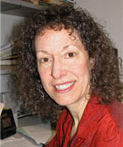Enhancing research, creative activity in the arts and humanities
mikayla.makleEleven of Washington State University’s most innovative scholars and artists have been selected for faculty fellowships and mini-grants from the Center for Arts and Humanities (CAH) and the Office of Research.

“We are excited to support faculty as they advance not only their academic fields but also the communities we serve,” said Todd Butler, director of the center, associate dean in the College of Arts and Sciences, and professor of English.
Funded by a five-year commitment from the Office of Research and its strategic research investment program, the center’s grant programs strengthen and enhance research and creative endeavors across WSU. Any faculty member pursuing arts and humanities-related work, regardless of rank or home department, is eligible to apply.
“This year, almost all of the arts and humanities departments—as well as associated faculty working in the social sciences—were represented in the proposals submitted, testifying to the ongoing vitality and reach of these disciplines at Washington State University,” said Butler.
Reflecting upon her CAH experience, School of Music instructor and 2019 faculty fellow Melissa Parkhurst said, “The CAH Faculty Fellowship put me in regular communication with a group of dedicated interdisciplinary scholars. I gained a vital support network, valuable feedback, and ideas for future projects.”




